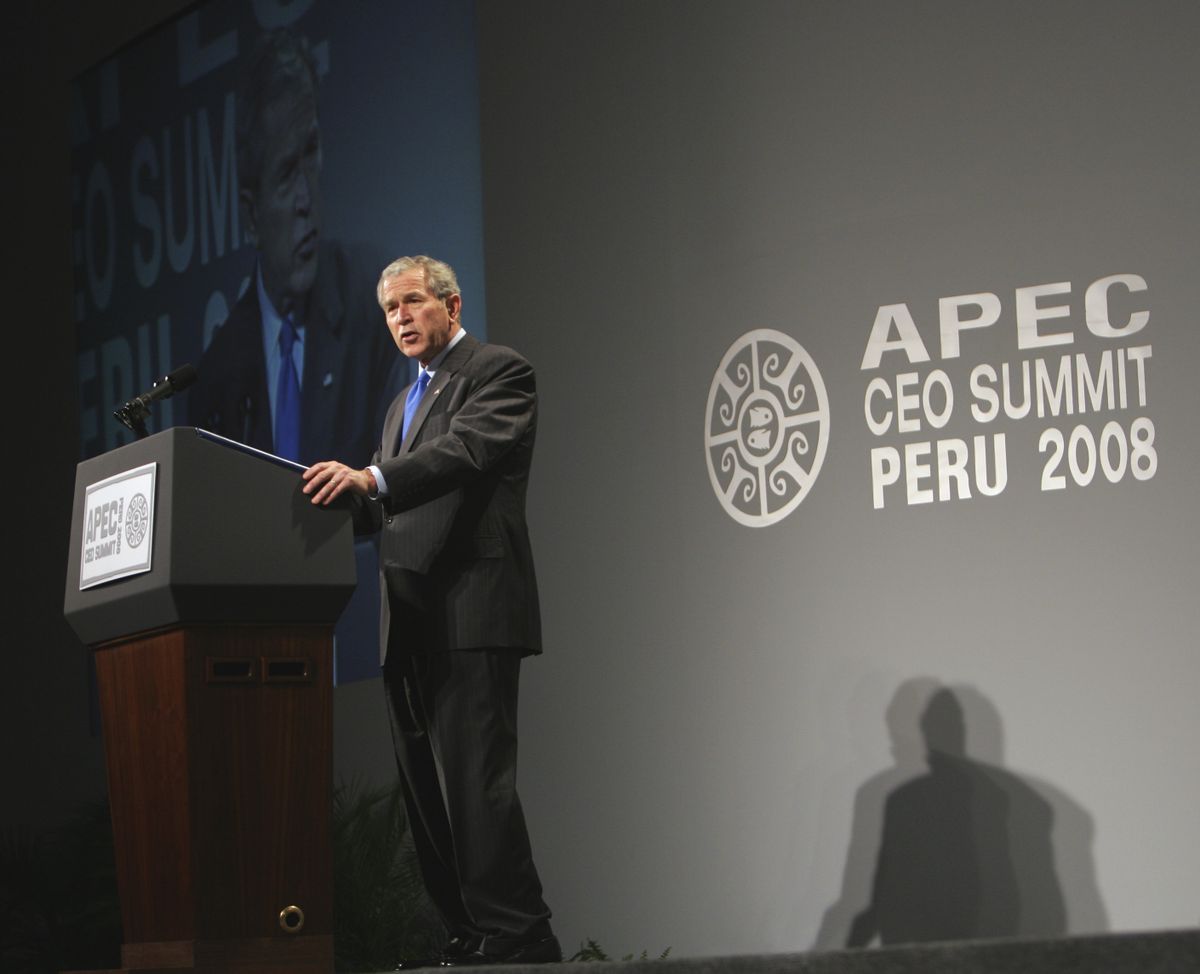Bush meets with Russian leader during APEC summit in Peru

LIMA, Peru – President George W. Bush held his last meeting with a Russian leader on Saturday, saying he had worked to forge a “cordial relationship” with President Dmitry Medvedev and to be “respectful” when they disagreed.
Attending the annual Asia-Pacific Economic Cooperation summit here in Peru, Bush also won pledges to keep Pacific Rim markets open during the financial crisis and made modest gains in stalled talks over North Korea’s nuclear weapons program.
The meeting between Bush and Medvedev came at a time of deepening tension between Washington and Moscow over the Georgian war, missile defense and other intractable conflicts. Their private session took place just hours after Bush issued a statement hailing the fifth anniversary of the “Rose Revolution” in Georgia, the nation Russia invaded in August.
“We’ve had our agreements; we’ve had our disagreements,” Bush said after shaking hands with Medvedev before their meeting. “I’ve tried to work hard to make it a cordial relationship, though, so that when we need to work together we can, and when we disagree we’re able to do so in a way that is respectful to our two nations.”
Medvedev echoed the friendly tone, saying that “though we do have points of agreement and those points of real differences,” he believed that “in general our work was successful.”
Bush’s decision to issue a statement on the 2003 Georgian revolution shortly before meeting with Medvedev surprised diplomatic experts. White House press secretary Dana Perino said the timing of the statement, which was dated Friday but released Saturday, was “purely a coincidence.”
Andrew Kuchins, a Russia expert at the Center for Strategic and International Studies in Washington, said the statement was an example of the “megaphone diplomacy” both sides appear to be practicing at the moment.
“Since the war in Georgia, they’ve pretty much given up on Russia, and Russia has pretty much given up on the Bush administration,” Kuchins said. “This is what we’re left with.”
The Rose Revolution, which peaked on Nov. 22 and 23, 2003, when protesters stormed parliament carrying roses and eventually forced the resignation of then-Prime Minister Eduard Shevardnadze, is a particularly sore point for Moscow. The uprising, led by Georgia’s current president, Mikheil Saakashvili, ushered in a pro-Western government that has sought to join NATO and end centuries of Russian dominance in its affairs.
Bush called the revolution one of the “most inspiring chapters in the history of freedom” and reiterated U.S. support for Georgia’s “territorial integrity.”
Medvedev has loudly defended Russia’s incursion into Georgia this summer during a dispute over the breakaway provinces of South Ossetia and Abkhazia. He also threatened to retaliate if a U.S.-planned missile defense system in Eastern Europe goes forward, while also wishing for good relations with President-elect Barack Obama.
At the summit, leaders of the 21-nation group endorsed an agreement reached at an earlier Washington summit to adhere to free-market principles while enacting tough financial reforms. The APEC nations also vowed to “refrain within the next 12 months from raising new barriers to investment or to trade,” and pledged to move ahead next month with a global trade pact that collapsed last summer.
“There are times when government intervention is essential,” Bush said, referring to massive efforts by the United States and other major economies to shore up foundering credit markets in recent months. “… Yet it is also essential that nations resist the temptation to overcorrect by imposing regulations that would stifle innovation and choke off growth.”
In another development, U.S. officials said nations involved in six-party talks to rid North Korea of nuclear weapons will meet in Beijing next month, part of an effort to restart negotiations.